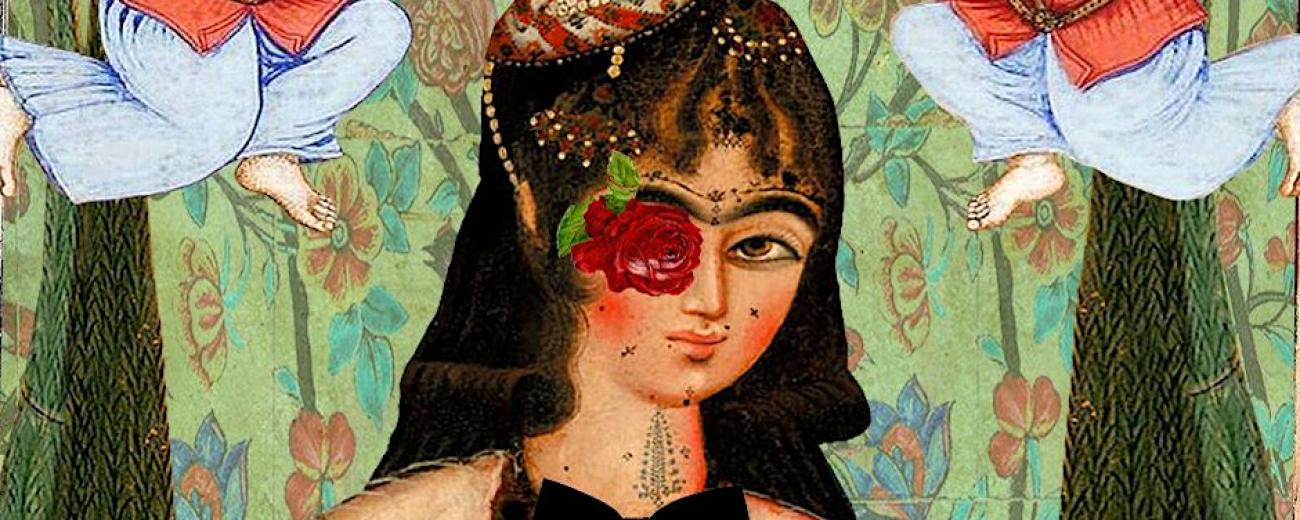
Unveiled: Three Tableaux of Maryam

Key information
- Date
- Time
-
6:00 pm to 8:00 pm
- Venue
- Brunei Gallery, SOAS
- Room
- Brunei Gallery Lecture Theatre (BGLT)
- Event type
- Performance
About this event
Mirzadeh Eshghi (1893-1924) wrote the "Three Tableaux of Maryam" in 1924, as a response to the call made by the government of Iran, asking intellectuals to "describe their ideals for forming a central government under the rule of the chief commander of the army".
Eshghi's response, which was printed in Shefaq-e Sorkh newspaper, was somewhat satirical and critical. It depicted a tragic love story about an innocent girl (Maryam), who represents the Constitutional Revolution of Iran (1905-1911) and its demise. Eshghi tells the story in a remarkably fresh and modern language, introducing imagery which had hitherto not been found in Persian poetry. He incorporates various points of view and timelines while using new variations of old poetic forms. In the first publication, he proudly calls this work, "the introduction to the revolution of new Persian literature", while humbly asking for readers’ suggestions for improvement.
In “Three Tableaux of Maryam”, Eshghi deals with many sensitive subjects, such as female virginity, honour deaths, misogynistic culture, treason, martyrdom, revolution, and revenge. The sensitivity of the subject matter along with the bluntness of expression, most probably contributed to the work never being performed, as well as Eshghi’s tragic murder.
About the artist
Hossein Hadisi is a composer and musicologist, whose work focuses on neoclassical and contemporary music. Hossein studied composition in Iran with Kambiz Roshanravan and violin with Siavash Zahireddini. He then performed and produced music in Malaysia for a few years, before moving to the UK to study with Professor Michael Finnissy.
He then found Southampton Arts Academy, while conducting postdoctoral research at University of Cambridge on Persian mythology and contemporary pathways in Persian music composition. Hossein is currently working on a new research project with Cambridge Shahnameh Centre, indexing Persian mythological texts.
Organiser
Cambridge Shahnameh Centre, Southampton Arts Academy and the Centre for Iranian Studies, SOAS.


